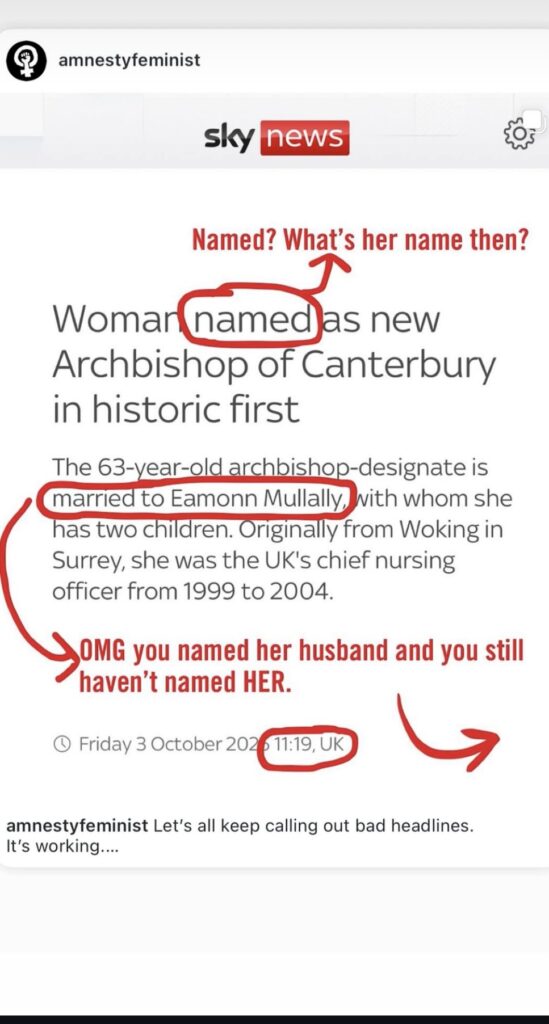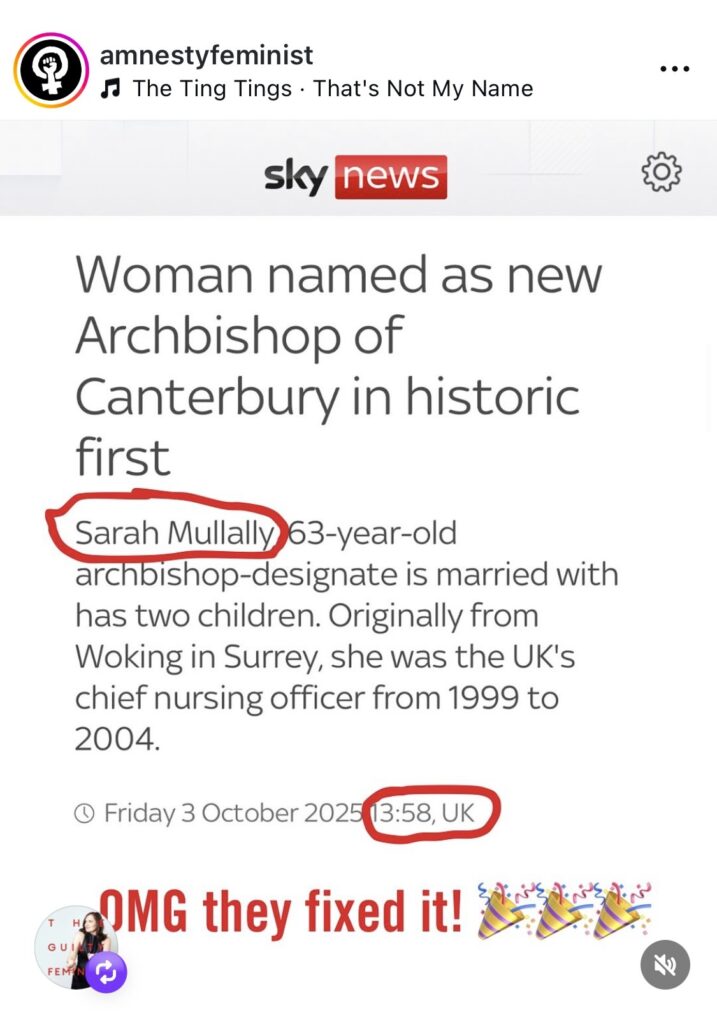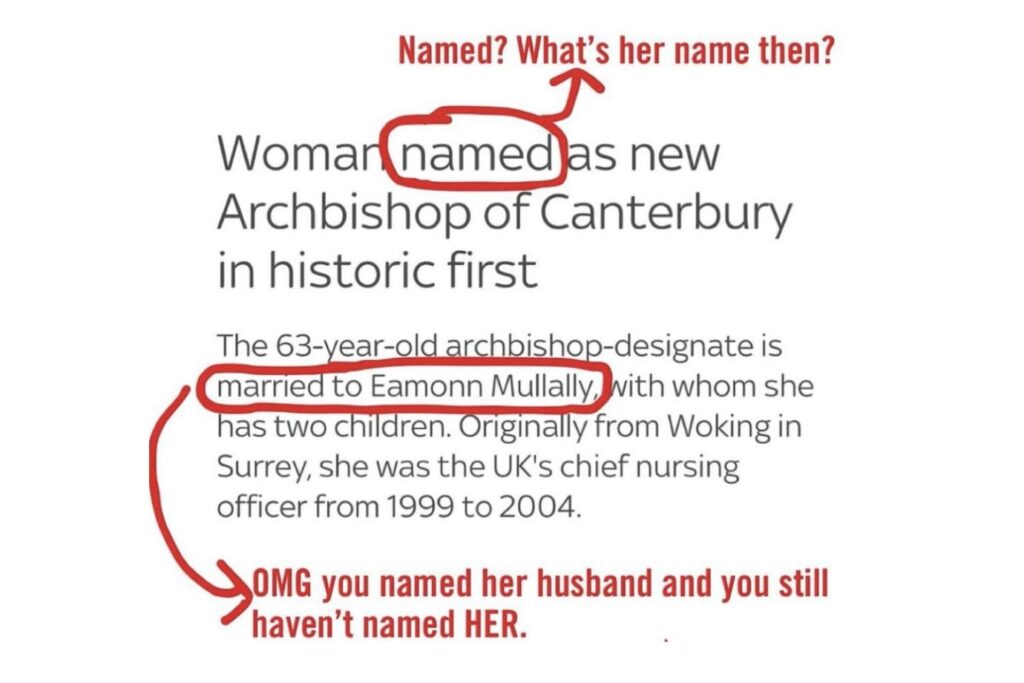In a historic moment for the Anglican Church, Dame Sarah Mullally was appointed as the first female Archbishop of Canterbury. This milestone should have been celebrated with headlines highlighting her professional achievements and the significance of her appointment. Instead, Sky News UK initially failed to even name her in their headline or description, choosing instead to mention her husband. Two hours later, and only after public backlash did, they update the post to include her name, but not without adding her age, marital status, and number of children.
The original Sky News UK headline that was shared on Instagram by Amnesty Feminist, was dehumanizing, reducing Dame Sarah Mullally to her familial roles rather than emphasising her credentials. She is a former Chief Nursing Officer and was the first female Bishop of London in 2018. Her advocacy for women’s rights within the Anglican Church is well-documented and commendable. Yet, these accomplishments were overshadowed by irrelevant personal details.

Gendered reporting not only undermines women’s achievements but also perpetuates stereotypes that hinder progress toward equality. In 2025, it is unacceptable that media outlets still default to outdated narratives when covering female leaders. The inclusion of age, marital status, and motherhood in professional contexts reinforces the notion that a woman’s worth is tied to her personal life.
Media organisations must take responsibility for their role in shaping public perception. As consumers, we must continue to call out biased coverage and demand better. Dame Sarah Mullally’s appointment is a landmark moment that deserves recognition for its significance, not reduction to stereotypes.
This incident is a stark reminder of the gendered lens through which media continues to report on women in positions of power. When Anthony Albanese became Prime Minister of Australia in 2022, coverage focused on his humble beginnings and political journey. There was no mention of his marital status or children. In contrast, when Julia Gillard became Australia’s first female Prime Minister, media coverage was rife with commentary on her being ‘unwed’ and ‘childless’. Headlines and commentary frequently focused on her personal life rather than her political vision or leadership credentials.
Gillard herself later called out this bias, noting that questions about her domestic arrangements were irrelevant to her ability to govern. In contrast, male leaders such as Kevin Rudd or Tony Abbott were rarely subjected to scrutiny about their family lives. This disparity illustrates how women in power are often framed through a lens of traditional gender expectations, reinforcing stereotypes that leadership and family roles must intersect for women.
More recently, while Kamala Harris’s historic election as the first female Vice President of the United States in 2020 was widely celebrated, media narratives often leaned heavily on her identity markers—her gender, race, and marital status—rather than her policy expertise or legislative record. While acknowledging “firsts” is important, the disproportionate emphasis on personal identity can overshadow professional achievements. Compare this to coverage of male vice presidents, where discussions typically centre on political strategy and governance experience. This pattern perpetuates the notion that women’s leadership is exceptional rather than normalised, subtly reinforcing the idea that their presence in power is an anomaly.
These examples underscore a persistent bias: women are often defined by their personal lives, while men are celebrated for their professional accomplishments. It is time for the media to evolve and reflect the values of equality and respect. Celebrating women for their accomplishments without unnecessary personal details is not difficult, it simply requires intention and integrity.

And here’s the thing, writing an accurate, respectful headline isn’t rocket science. A comment under Amnesty Feminist’s post demonstrated this perfectly with their rewrite: “Dame Sarah Mullally named the first female Archbishop of Canterbury and leader of the Church of England. The former chief nursing officer was the first female bishop of London in 2018 and a long advocate for women’s rights in the Anglican Church.” How hard was that? It’s concise, professional, and celebrates her achievements without reducing her to her marital status or motherhood. If a social media comment can get it right in two sentences, surely major news outlets can too. The question is—will they choose to?

